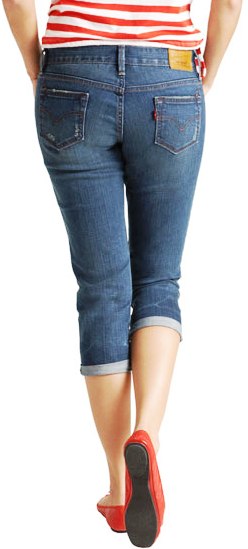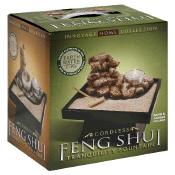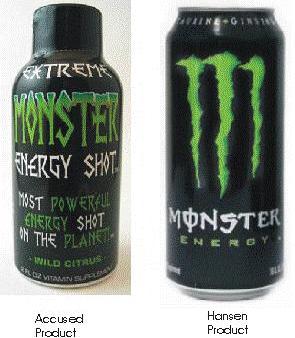Los Angeles, CA – Trademark attorneys for Professional Photographers of America, Inc. filed a trademark infringement and unfair competition lawsuit at the Federal District Court in Los Angeles, alleging infringement of Professional Photographers’ USPTO registered trademarks for Imaging USA and Imaging Expo. The complaint states that since 1999, Professional Photographers has used the Imaging USA trademark for trade shows in the field of professional photography and has used the Imaging Expo trademark since 2004 for trade shows.
 Plaintiff asserts that Defendant “Rangefinder intends to use the designation World Imaging Expo for tradeshows in the field of professional photography” and that Plaintiff became aware of the competing tradeshow when it discovered a copy of the World Imaging Expo convention program guide. Professional Photographers also discovered that Rangefinder had filed an intent-to-use trademark application with the USPTO. Professional Photographers asserts that it sent a cease and desist letter to Rangefinder over the use of the World Imaging Expo trademark, but Rangefinder refused to withdraw its pending trademark application or stop using the trademark. Thus the complaint was filed asserting causes of action for federal trademark infringement under 15 U.S.C. § 1114, false designation of origin and false representation under 15 U.S.C. § 1125(a), and unfair competition under California common law and statutes. The case is titled Professional Photographers of America, Inc. v. Rangefinder Publishing Co., CV08-02324 SVW (C.D. Cal. 2008).
Plaintiff asserts that Defendant “Rangefinder intends to use the designation World Imaging Expo for tradeshows in the field of professional photography” and that Plaintiff became aware of the competing tradeshow when it discovered a copy of the World Imaging Expo convention program guide. Professional Photographers also discovered that Rangefinder had filed an intent-to-use trademark application with the USPTO. Professional Photographers asserts that it sent a cease and desist letter to Rangefinder over the use of the World Imaging Expo trademark, but Rangefinder refused to withdraw its pending trademark application or stop using the trademark. Thus the complaint was filed asserting causes of action for federal trademark infringement under 15 U.S.C. § 1114, false designation of origin and false representation under 15 U.S.C. § 1125(a), and unfair competition under California common law and statutes. The case is titled Professional Photographers of America, Inc. v. Rangefinder Publishing Co., CV08-02324 SVW (C.D. Cal. 2008).
PRACTICE NOTE: A proposed trademark does not have to be identical to another party’s previously registered or used trademark in order to prove infringement. If there is going to be a “likelihood of confusion” between the two trademarks, a Court will enjoin the junior trademark owner’s use of the “confusingly similar” trademark. For example, the trademark Red Shield for insurance services was held to be confusingly similar with the previously registered Blue Shield® trademark.
 Los Angeles Intellectual Property Trademark Attorney Blog
Los Angeles Intellectual Property Trademark Attorney Blog


 Plaintiff alleges that Defendant’s website,
Plaintiff alleges that Defendant’s website, 
 Levis alleges that defendant Jeans City manufactures, sources, markets and/or sells “jeans that diplay designs on the rear pockets that are confusingly similar to [Levis’] Arcuate and Tab trademarks.” The complaint alleges that “Jeans City’s actions have caused and will cause [Levis] irreparable harm for which money damages and other remedies are inadequate. Unless Jeans City is restrained by this Court, Jeans City will continue and/or expand the illegal activities alleged in this Complaint and otherwise continue to cause great and irreparable damage and injury to Levis.” Levis claims that it will be harmed by not being able to use and control use of its trademarks, a likelihood of confusion, mistake and deception created in the minds of consumers, false association between Levis and Jeans City, and loss of goodwill. The complaint alleges the following causes of action: (1) Trademark infringement under 15 U.S.C. § 1114; (2) Federal unfair competition, false designation of origin, and false description under section 43(a) of the Lanham Act, 15 U.S.C. § 1125(a); (3) Federal trademark dilution under the Lanham Act section 43(c), 15 U.S.C. § 1125(c); (4) California dilution and trademark infringement under Cal. Bus. & Prof. Code §§ 14320, 14330, 14335, 14340; and, (5) Unfair competition under Cal. Bus. & Prof. Code § 17200. The case is titled Levis Strauss & Co. v. Jeans City USA, Inc., CV08-01639 WHA (N.D. California).
Levis alleges that defendant Jeans City manufactures, sources, markets and/or sells “jeans that diplay designs on the rear pockets that are confusingly similar to [Levis’] Arcuate and Tab trademarks.” The complaint alleges that “Jeans City’s actions have caused and will cause [Levis] irreparable harm for which money damages and other remedies are inadequate. Unless Jeans City is restrained by this Court, Jeans City will continue and/or expand the illegal activities alleged in this Complaint and otherwise continue to cause great and irreparable damage and injury to Levis.” Levis claims that it will be harmed by not being able to use and control use of its trademarks, a likelihood of confusion, mistake and deception created in the minds of consumers, false association between Levis and Jeans City, and loss of goodwill. The complaint alleges the following causes of action: (1) Trademark infringement under 15 U.S.C. § 1114; (2) Federal unfair competition, false designation of origin, and false description under section 43(a) of the Lanham Act, 15 U.S.C. § 1125(a); (3) Federal trademark dilution under the Lanham Act section 43(c), 15 U.S.C. § 1125(c); (4) California dilution and trademark infringement under Cal. Bus. & Prof. Code §§ 14320, 14330, 14335, 14340; and, (5) Unfair competition under Cal. Bus. & Prof. Code § 17200. The case is titled Levis Strauss & Co. v. Jeans City USA, Inc., CV08-01639 WHA (N.D. California).
 Innovage did not wait for Style Asia to disturb its harmonious, Zen like use of its Feng Shui trademark and instituted a lawsuit against Style Asia. Innovate alleges that it, and not Style Asia, was first to use the Feng Shui trademark and despite Style Asia’s trademark registration, Innovage sued for trademark infringement and unfair competition under section 43(a) of the Lanham Act (15 U.S.C. § 1125(a)). The complaint alleges that Style Asia’s use of the Feng Shui trademark “is likely to cause confusion, mistake and deception of the public as to the identity and origin of its own and of Innovage’s goods, causing irreparable harm to Innovage.” The complaint also asserts a California common law unfair competition claim and alleges that Style Asia took advantage of Innovage’s goodwill in the trademark. Innovage also asks the Court to declare that it does not infringe on Style Asia’s trademark and requests the Court order cancellation of the registration at the USPTO. The case is titled Innovage LLC v. Style Asia, Inc., CV08-00310 JVS (Central District California).
Innovage did not wait for Style Asia to disturb its harmonious, Zen like use of its Feng Shui trademark and instituted a lawsuit against Style Asia. Innovate alleges that it, and not Style Asia, was first to use the Feng Shui trademark and despite Style Asia’s trademark registration, Innovage sued for trademark infringement and unfair competition under section 43(a) of the Lanham Act (15 U.S.C. § 1125(a)). The complaint alleges that Style Asia’s use of the Feng Shui trademark “is likely to cause confusion, mistake and deception of the public as to the identity and origin of its own and of Innovage’s goods, causing irreparable harm to Innovage.” The complaint also asserts a California common law unfair competition claim and alleges that Style Asia took advantage of Innovage’s goodwill in the trademark. Innovage also asks the Court to declare that it does not infringe on Style Asia’s trademark and requests the Court order cancellation of the registration at the USPTO. The case is titled Innovage LLC v. Style Asia, Inc., CV08-00310 JVS (Central District California). Defendants also sell an energy product under the trademark of Monster Energy Shot. Hansen alleges that “without permission or authority from Hansen, Defendants have infringed Hansen’s MONSTER Marks in interstate commerce in connection with Defendants’ making, using, promoting, advertising, selling, and/or offering to sell the MONSTER ENERGY SHOT drink.” The complaint also states that, by choosing a similar color scheme on their containers, “Defendants have infringed Hansen’s MONSTER trade dress in interstate commerce in connection with Defendants’ making, using, promoting, advertising, selling, and/or offering to sell its MONSTER ENERGY SHOT energy drink.” The complaint asserts the following causes of action: (1) Trademark infringement 15 U.S.C. §§ 1114; (2) Trademark dilution under the Lanham Act section 43(c), 15 U.S.C. § 1125(c); (3) False designation of origin and trade dress infringement under section 43(a) of the Lanham Act, 15 U.S.C. § 1125(a); (4) California trademark dilution under Cal. Bus. & Prof. Code § 14330; (5) Unfair competition under Cal. Bus. & Prof. Code §§ 17200 and 17500; (6) Common law trademark infringement; (7) Common law trade dress infringement; and, (8) California common law unfair competiton. The case is titled Hansen Beverage Company v. N2G Distributing, Inc., et al., EDCV08-0357 VAP (C.D. California).
Defendants also sell an energy product under the trademark of Monster Energy Shot. Hansen alleges that “without permission or authority from Hansen, Defendants have infringed Hansen’s MONSTER Marks in interstate commerce in connection with Defendants’ making, using, promoting, advertising, selling, and/or offering to sell the MONSTER ENERGY SHOT drink.” The complaint also states that, by choosing a similar color scheme on their containers, “Defendants have infringed Hansen’s MONSTER trade dress in interstate commerce in connection with Defendants’ making, using, promoting, advertising, selling, and/or offering to sell its MONSTER ENERGY SHOT energy drink.” The complaint asserts the following causes of action: (1) Trademark infringement 15 U.S.C. §§ 1114; (2) Trademark dilution under the Lanham Act section 43(c), 15 U.S.C. § 1125(c); (3) False designation of origin and trade dress infringement under section 43(a) of the Lanham Act, 15 U.S.C. § 1125(a); (4) California trademark dilution under Cal. Bus. & Prof. Code § 14330; (5) Unfair competition under Cal. Bus. & Prof. Code §§ 17200 and 17500; (6) Common law trademark infringement; (7) Common law trade dress infringement; and, (8) California common law unfair competiton. The case is titled Hansen Beverage Company v. N2G Distributing, Inc., et al., EDCV08-0357 VAP (C.D. California).